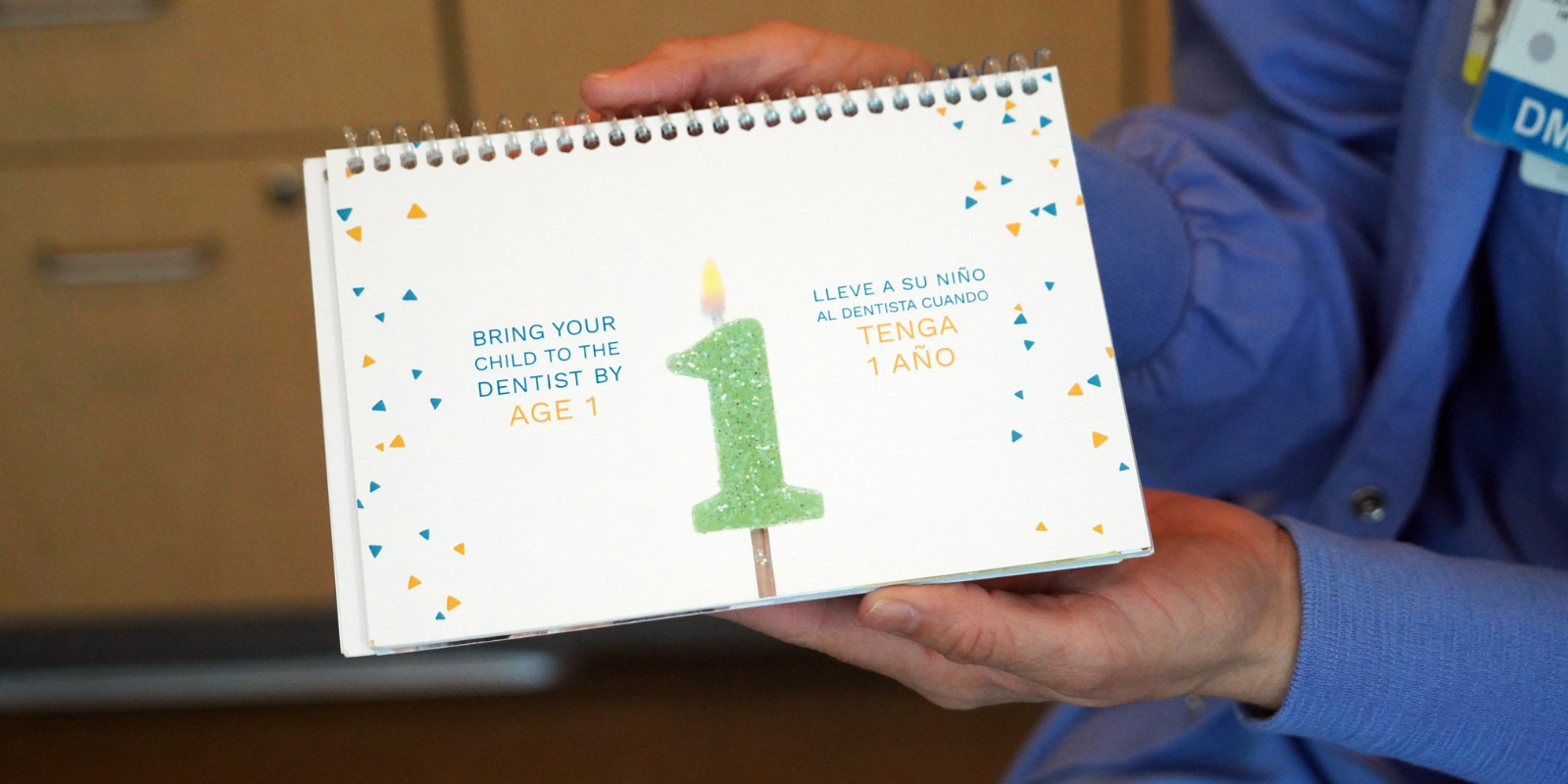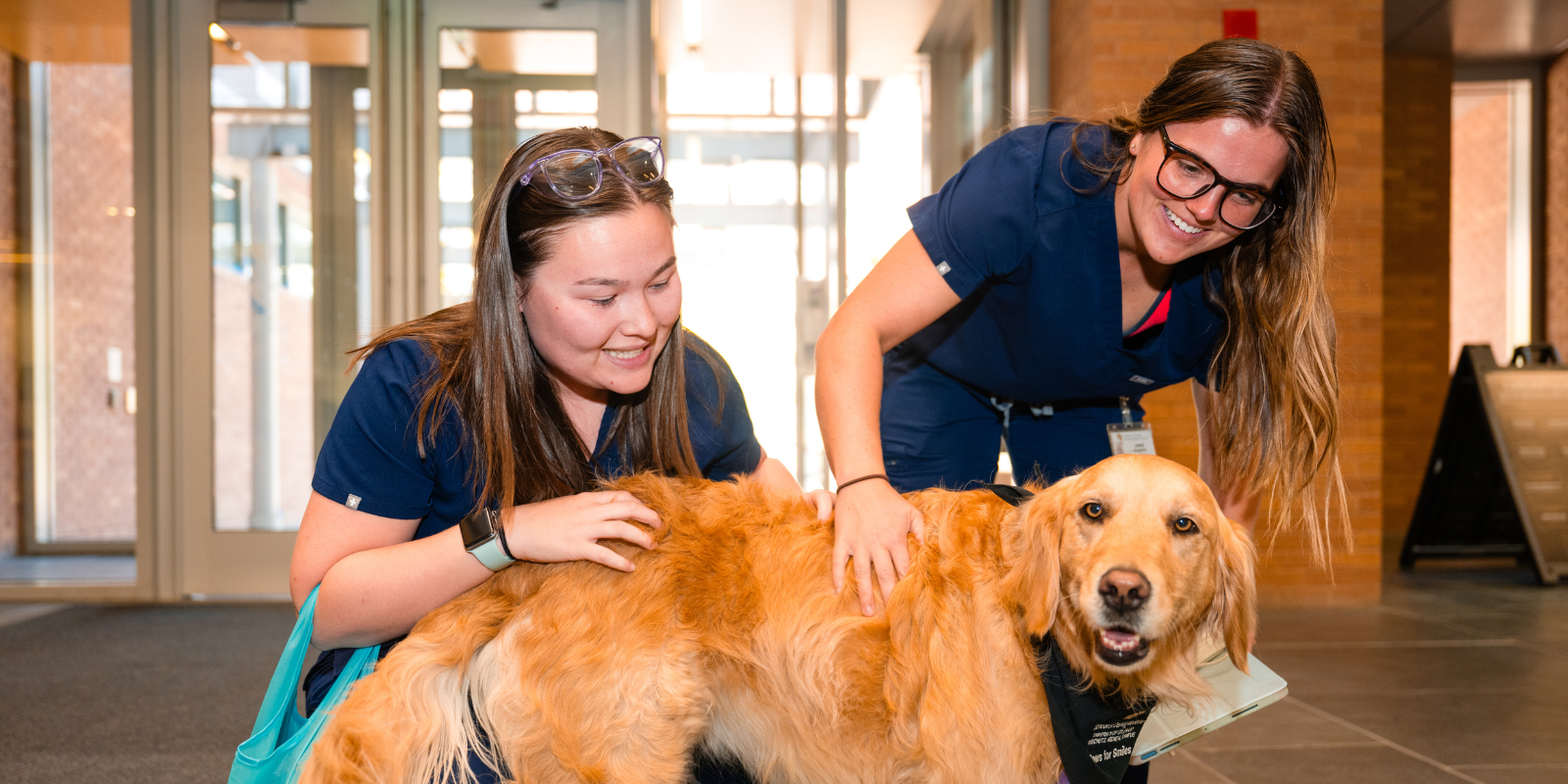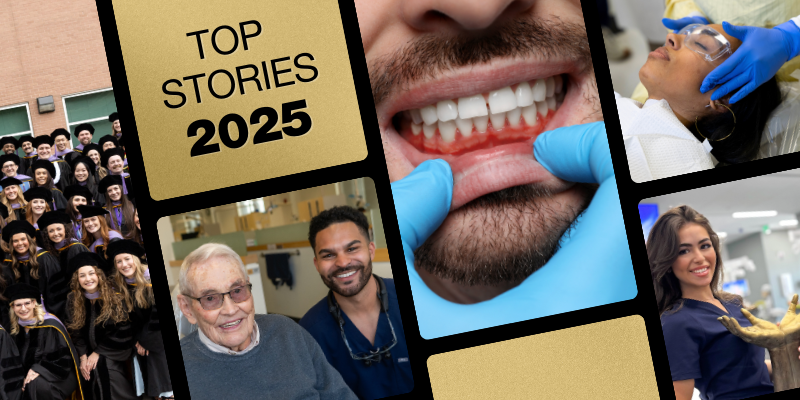When Natalie Newton was a dental student on the University of Colorado Anschutz Medical Campus, she worried about damaging her hearing as she and other students operated high-pitched handpieces (often referred to as drills) while they practiced fixing teeth.
“I’m a musician. I want to be able to hear. I love hearing and enjoying music and the sights and sounds of places,” said Natalie Newton, DDS.
She was right to be concerned. Studies show dentists have twice the rate of hearing loss and tinnitus compared to the general population. The culprit is noise from the handpieces.
“It's not something you think about because it's pretty quick. You know, you get your drill out, you do your drilling for the tooth you need, and then it's done,” said Caylin McCallick, AuD, at the University of Colorado School of Medicine. “Unfortunately, while that's happening, your ears are also getting damaged.“
Hearing Loss Prevention
McCallick recently taught students at the School of Dental Medicine about the danger of hearing loss in dentistry during a lunch and learn session at the University of Colorado. She recommended they invest in custom earplugs like those musicians wear to protect their hearing. Dr. McCallick tested the sound level of just one handpiece and found it topped 90 decibels, which over time, is a sound level that can impair hearing.
“With noise-induced hearing loss, it is a permanent loss. So, it's a serious condition. It's something that you definitely need to take very seriously,” said McCallick.
That warning led Newton to visit the Campus Health Center, which cares for students, faculty, staff, employees, and their family members on campus. The clinic is one of four clinics in nine locations in the Denver Metro area managed by the University of Colorado College of Nursing.
“I met with my nurse practitioner Emily Cheshire, DNP. I really love her. I knew that even though I still wasn't really clear on where to go, that she was a good place to start,” said Newton.
Dr. Cheshire checked into the new warnings for dental students and dentists, then referred Newton to an audiologist at UCHealth University of Colorado Hospital to get her hearing tested and fitted for custom earplugs. Now every time Cheshire treats dental students, she brings the issue to their attention so they will protect their hearing.
“This is just one example of the clinic’s collaborative, integrated approach and how we work as a team to help all patients in real-time,” said Clinical Director Emily Cheshire, DNP, MS, FNP-BC.
Community Clinic
Become a Patient Today“The Campus Health Center is not your typical college campus health center. Because we are a medical campus, we are specifically geared to our unique populations including students, faculty, staff and their families,” said Cheshire. “The beauty of our center is that we can see patients very quickly and have access to all that a medical research campus has to offer.”
With a goal of caring for the whole person, mind and body, the center is run and staffed by faculty from the College of Nursing. Medical practitioners work together to keep everyone who works and studies on the campus healthy and take care of them when they’re sick.
“Our distinct populations have many needs. And the coursework here is very rigorous. Because of that, students are so focused on their schoolwork that they tend to make healthcare a low priority, which is ironic given that they will be our next generation of providers.”
According to Cheshire, the best time to sign up and become a patient is the first week of classes or right when a student is accepted into one of the programs.
“The worst time to look for a provider is when you’re actively, acutely ill and when you just want care,” said Cheshire. “It’s also extremely important to make sure that we’re keeping up with preventive wellness screens and addressing anxiety, stress management, those pieces that if you put the time in on the front end, it can really help get through the rigor of these programs in a healthy way.”
Whether students, faculty or staff are sick, need behavioral health support, preventive, wellness or specialty care, the Campus Health Center is available to meet those needs.
In addition to the audiology referral and care Newton received through the clinic, she also sought help for family planning, pregnancy care, and prenatal advice.
Midwifery care
When Newton came in for her appointment, Cheshire shared her experiences of using both midwives and traditional OB/Gyn for the birth of her three children.
“Both approaches are valid and provide different birthing experiences,” said Cheshire.
“Midwives offer alternative ways to get through labor and delivery. It’s more of a natural childbirth process where the mother needs to be supported versus a medical intervention. The midwifery department through the College of Nursing is really great because they have collaboration where if invasive medical intervention is required, it’s available,” said Cheshire.
CU Nursing runs and operates five nurse-led midwifery locations in the Denver metropolitan area. All of the babies born through the clinics are delivered at area hospitals.
Newton chose the midwifery route when she had her son Soren.
“As great as it was to work with them through the pregnancy experience, the delivery experience was even better. They listened, were there for me, and helped my husband be involved. It was a very positive experience,” said Newton, now a graduate and practicing dentist.
“Even when we were in the hospital waiting to be released, my husband was saying, ‘How can we figure out how to come back down here to work with these midwives to deliver any additional kids that we have if we have them?’”
A place for everything
Midwives, hearing protection, wellness and prevention. The Campus Health Center provides care for its unique community. Soon, the center will move into a new space with student mental health and be renamed Campus Community Health. Whether students are sick, need behavior health support, preventive, wellness or specialty care, Campus Community Health is the optimal place to seek primary care.
“If I’m seeing patients for TB screens and learn they require behavioral health support, I’m able to get a behavioral health provider to speak to them and schedule follow-up care in real time rather than placing a referral that drains students’ time from their programs when they’re already not feeling well,” Cheshire said.
“This student population is comprised of the smartest in the nation and they deserve to have a dedicated primary care clinic looking out for their wellness.”
Learn more about the Campus Health Center at CU Anschutz Medical Campus.



